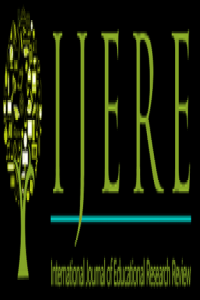
International Journal of Educational Research Review
Yazarlar: Cavide DEMİRCİ, Mehmet AKCALAN
Konular:Eğitim, Bilimsel Disiplinler
DOI:10.24331/ijere.1019300
Anahtar Kelimeler:Language Learning Curiosity,Feeling of Interest,Feeling of Deprivation.
Özet: The purpose of the study is to adapt the original language learning curiosity scale into the Turkish language. The concept of curiosity has been explained in many types and scopes. Language curiosity comprises two main curiosity types reflecting as a feeling of interest and deprivation (Litman, 2007; Litman & Jimerson, 2004; Mahmoodzadeh & Khajavy, 2019). The data was collected from 670 volunteer middle school students who live in Ankara, Turkey. The 6 point Likert-type original scale has 11 items with two subscales related to the feeling of interest (1, 4, 9, 11. items) and deprivation (2, 3, 5, 6, 7, 8, 10. items). Internal consistency of the original full scale and subscales as a feeling of interest and as a feeling of deprivation were proved reliable with the findings of 0.80, 0.74 and 0.72 respectively. CFA of the original scale was performed with a two-factor model which demonstrates well fit indices. After a series of translation process of the scale items into Turkish language, the adapted scale was applied at three middle schools in Ankara. The adapted scale’s descriptive statistics showed similar findings with the original scale results. Internal consistency of the adapted scale and the subscales as a feeling of interest and as a feeling of deprivation were detected .92, .86 and .88 respectively. CFA of the adapted scale was calculated with the same model of the original scale as a two-factor model showed well fit indices. The adapted scale’s two-factor model demonstrated a well fit indices (.94 for CFI, .93 for TLI, .08 for RMSEA and .06 for SRMR) similar to the original one’s findings. These statistical demonstrations prove that the adapted scale items are valid and reliable for the Turkish language and culture with the scope of middle school students in Turkey. The Turkish version of the language learning curiosity scale may be testified for the higher level of students who studies in high schools or colleges with other variables.